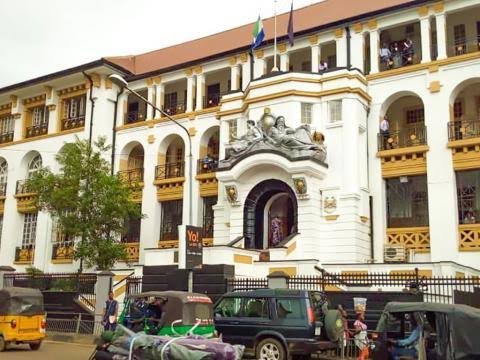By Sidikie Elvis Fornah
Democracy is not sustained by the Executive alone. Its true strength lies in the balance and effectiveness of the three arms of government: the Executive, the Legislature, and the Judiciary. Each is entrusted with distinct roles, but collectively, they safeguard the ideals of good governance, accountability, and justice. When any of these arms fail in their duties, democracy itself is placed at risk.
In Sierra Leone, public trust in the Judiciary has been tested over the years. Many citizens have expressed deep concerns about whether justice is being delivered impartially or whether the institution has at times yielded to political and external pressures. Such concerns strike at the very heart of democracy, for without an independent Judiciary, the rule of law becomes fragile, and the people’s faith in governance begins to erode.
The Judiciary is more than just a dispute-resolution mechanism; it is the guardian of the Constitution, the protector of citizens’ rights, and the final arbiter of justice. For this reason, it must remain not only independent but also visibly so above the influence of politics, money, or intimidation.
The press release issued on 29th September 2025 by the Judiciary of Sierra Leone marks a pivotal moment in the country’s democratic journey. By placing a senior Justice of the Court of Appeal on administrative leave and referring the matter to the Judicial and Legal Service Commission (JLSC), the Judiciary has taken a bold and necessary step. This decision is not only about discipline but about restoring and reinforcing confidence in the system. It sends a clear message: no one, regardless of rank or status, is above accountability.
This move is a powerful example for other institutions of governance. The Executive must remain accountable to the people, avoiding arbitrary power. The Legislature must ensure that its lawmaking and oversight functions are carried out with transparency and dedication to the public interest. Civil and public service bodies must administer their duties with integrity. Collectively, these pillars form the architecture of a democracy that serves its citizens faithfully.
Furthermore, this action by the Judiciary should serve as a national lesson—that self-correction within institutions is a sign of strength, not weakness. Sierra Leone’s path to stronger democracy depends not only on criticizing external interference but on ensuring that institutions themselves are willing to reform and take decisive steps when credibility is at stake.
As Sierra Leone continues to build its democratic legacy, the independence of the Judiciary must remain a sacred principle. True democracy cannot survive when justice is compromised. It is only when justice is dispensed fairly, impartially, and without fear or favor that the people will continue to have faith in their institutions.
As the saying goes, “When justice is blind, democracy can see.” For Sierra Leone to truly progress, its institutions must remain blind to fear and favor, so that the people may see the light of fairness, accountability, and justice.



